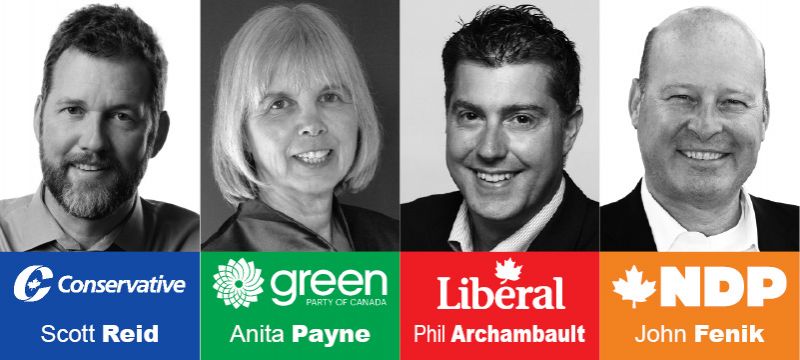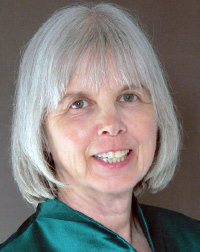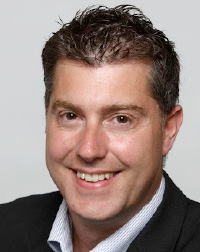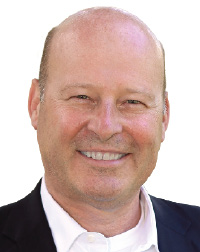Oct 14, 2015
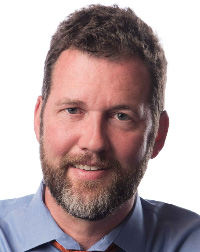 Conservative Party, Scott Reid
Conservative Party, Scott Reid
Scott Reid has been elected five times to the House of Commons, and each time he has increased his share of the popular vote. He was first elected in 2000, representing the Canadian Alliance in the riding of Lanark Carleton. The vote was close; he beat Liberal Ian Murray by less than 2,000 votes, receiving 39% of the votes cast. He was one of two Canadian Alliance MPs from Ontario.
He was Stephen Harper's Ontario organizer during Harper's successful run for the Alliance Party leadership over Stockwell Day, and a year later he was deeply involved in the merger talks between the Alliance and Progressive Conservative Parties, leading to the formation of the Conservative Party of Canada. In 2004, 2006, 2008, and 2011, he won elections in the riding of Lanark-Frontenac-Lennox and Addington, polling 49%, 51%, 56% and 57% respectively in those elections. He has served as deputy government house leader ever since the Harper Conservatives took power in 2006.
Reid has actually been working in politics since 1994, as an advisor and organizer for Preston Manning, and later, Stockwell Day.
After 21 years in political life, the question of retirement did not really come up for Reid this time around.
“I enjoy what I do, balancing constituency work with parliamentary responsibilities, and at the same time being able to publish,” he said.
Before his time in politics, Reid published two political books, Lament For a Notion, and Canada Remapped. He continues to publish articles on public policy.
Even as Parliament has a reputation as a hotbed of partisan politics, Scott Reid has for the most part avoided confrontation. He has chaired the International Human Rights Committee, one of the only committees in the house that is not only non-partisan, it operates by consensus most of the time.
“People see question period and media scrums on the news, but that is not the whole picture,” he said.
Aside from his human rights work, Reid has turned what was at first a way to spend a $20,000 MP salary increase he did not need into a life saving program. He invests the money each year into defibrillators, which are installed at public locations throughout the riding.
The program now includes training of students and others in how to use the units, and also in CPR.
Reid's current goal is to convince the OPP and the RCMP to place the units in their cars, which, he says, would save lives.
“I am trying to get the units into police cars, because they are first responders, but there is resistance from the OPP and RCMP. The OPP say they have no room in the trunks of their cruisers. But at the Frontenac County Anniversary in Harrowsmith there was an OPP officer there on traffic duty, and his trunk was open so I took a picture of the inside and there was plenty of room. I’m going to keep working on this. It would be a $10 million expense that would save hundreds of lives.”
Another item of study and politics for Scott Reid is Direct Democracy and Electoral Reform.
He had been instrumental in changes within his party and the election of the speaker of the House of Commons, both times bringing in a ranked voting system.
In terms of electoral reform in federal elections, he does not favour any of the mixed member proportional representation systems that have been proposed, but does think ranked voting would be an improvement, a position that is at odds with Conservative Party policy.
He also favours referenda on contentious public issues, and has held informal riding votes to determine his vote in Parliament on six different occasions.
Green Party, Anita Payne
As Anita Payne describes it, her initiation into the Green Party started when she was living in Stratford a dozen years ago. She was home one Saturday morning listening to the radio when she heard there was a local Green Party meeting later that day. She was teaching and running a bed and breakfast at the time but was able to attend.
“So I put on a pair of green jeans and a green shirt and off I went,” she said. It turned out the meeting was a nomination meeting for an upcoming provincial election. Ontario Green leader Frank de Jong was in attendance, and the people who showed up at the meeting ended up forming the riding association and working as a campaign committee. Anita Payne has been a party member ever since, both on the provincial and federal level, and served on the provincial executive between 2006 and 2009.
She said that in 2006 she went to hear Elizabeth May speak and “I was so inspired that I decided I wanted to be a candidate. I even had to contest the nomination the first time around.”
She was the candidate in Perth-Wellington in the 2007 provincial election, in Haliburton-Kawartha Lakes Brock in 2011, and again last year in Prince Edward-Hastings.
“I never had any political aspirations,” she said. “I first heard about the Green Party in Europe in the 1980s when the report of the Brundtland Commission, Our Common Future, came out. When the Green Party came to me, I was compelled to join. I have always had a keen interest in protecting the environment. That's why I run in these elections and that's why I took part in the Great March for Climate Change last year as well.”
The Great March was a walk from Los Angeles to Washington, DC. She marched from Los Angeles to Phoenix between March 1st and April 9 (2014) and from Chicago to Washington from September until November.
Anita Payne was born in Scarborough and has lived in different parts of Ontario. She lived with her family at a property on Black Lake, between Perth and Westport, from 1991 to 2000, when they moved to Stratford. They returned to Black Lake four years ago and Anita retired from teaching in 2013.
She said that when she compares herself to the other candidates, “I am the only one who is a mother and a grandmother. If we had more women in politics we might not even be in the situation we are in now. We need to look after our Mother Earth; she sustains us and gives us life, that's where I come from. That's the core of my being. The other candidates are really politicians. They are running because they want to be elected. I'm running for entirely different reasons.”
She said that she was encouraged at some of the all- candidates' meetings because “I felt when I was talking about climate change everyone was listening. Everyone knows we have to do better and they want to know how to do it.”
For her, the climate change issue is at a critical phase.
“There are many scientists who think we are in deep trouble, already in the teeth of mass extinction. Humans have brought this on and I believe that it is not too late to act, we need to mobilize around this. It's like WWII, everybody was making an effort to win the war, everybody got board and made an effort. This is what we all need to do to prevent the worst effects of climate change.”
While Anita Payne is not in the campaign with expectations of winning a seat, she shares the Green Party view that more Green party members should be in Parliament based on the party share of the popular vote.
“The voting system is not working. It marginalizes small parties and their supporters and hurts the country,” she said.
In addition to her environmental activism, she volunteers with Fair Vote Canada on electoral reform.
Liberal Party, Phil Archambault
Phil Archambault was born in St-Eustache Quebec. He lived in the Montreal area until 1995, when he left to travel the world. He met his wife, Melanie, in Bermuda and they settled for a time in the United Kingdom, where he acquired a Master’s in Business Administration at a University in Wales. He began working as a consultant in Europe, eventually taking a job with the UK National Health Service, working on process mapping and wait times.
The family moved back to Canada because they wanted to raise their children in Canada and settled for a short time in Toronto. In 2010 Archambault got a job with the Community Care Access Centre in Kingston and the family moved to Kingston and then Inverary. He has had a few positions since then and is currently working for Providence Care Hospital in Kingston, which is in the midst of building a new hospital.
He has been involved with the Liberal Party ever since arriving in Kingston, and worked on the election campaigns of John Gerretson and Ted Hsu. His interest in running was piqued when he went to the first meeting of the Lanark-Frontenac-Kingston riding association early in 2014.
“I told my wife that I thought I might have a better chance than the people at the meeting who were considering running for the nomination, and she said 'Are you crazy?' since we are already working so hard to raise our four young children,” he said.
A few weeks later Phil went to the biennial convention of the Liberal Party in Montreal.
“I met everyone there, Marc Garneau, Justin, the whole team, and I was really impressed with them, particularly Justin. I felt his presence and I felt his strength. And you can really see a leader by the people he surrounds himself with. They were all top people.
“So I decided that I wanted to run, I wanted to be part of it all. When she realized that I really wanted to do this, my wife has been very supportive, and I think she is excited by what we have accomplished.”
One area of government that Phil is concerned with comes from his own professional background, health care.
“The health care system was built 50 years ago with a focus on acute care, but now with an ageing population we need to deal with the Canada Health Act, with chronic care, community-based care, mental health issues, seniors’ homes, all those issues, and to do that the federal government needs to engage the provinces, not just refuse to meet with them and cut their budgets.”
A second issue that strikes a chord with him is the plight of Aboriginal Canadians.
A descendant of a Micmac great grandfather, Archambault is a member of the Métis Federation of Canada.
“I find it terrible that so many communities are drinking bottled water in this country in 2015,” he said.
According to Archambault the current state of affairs is partly the result of the Harper government that scrapped the Kelowna Accord, which the Liberals had worked so hard to achieve.
“Investments should have been made when we signed the Kelowna accord in 2005, but Stephen Harper has walked away from it. The drop out rate for Aboriginal students is higher than it was then. We've got to do something about this.”
After a full year on the campaign trail, Archambault won the Liberal nomination in October of 2014. He feels he has had some success in swing voters, particularly in the South Frontenac/North Kingston portion of the riding.
He feels that the effort, including early mornings on the side of the road, afternoons and evenings knocking on doors, and visits to events throughout the riding, “has been a once in a lifetime opportunity to possibly make a make a difference in this country. You've go to be in it to win it, I like to say, and I have been 100% in it.
New Democratic Party, John Fenik
There are two moments that are key to John Fenik's political career and his candidacy as a New Democrat in this election. The first took place almost 30 years ago when Fenik, a London, Ontario native educated in Social Work in Ottawa, took a six-month contract in the Town of Perth.
“I expected that I would move back to London when the contract was up, but I quickly fell in love with Perth and have never left,” he said.
With his wife Laurie, John has raised three daughters and built a life in Perth. He started his community service as a block parent and a parent council member, and then 17 years ago he took an interest in municipal politics and served as councilor and deputy mayor before running for mayor in 2006. He won the election in 2006, and was acclaimed to the position in both 2010 and 2014.
In his years on municipal council he has overseen many changes in the Town of Perth, including a shift from a dedicated police service to an OPP contract, and a major infrastructure project that closed down an arterial road for the better part of a year. As well he has played a role on a regional level with the Eastern Ontario Warden's Caucus in the development of a rural broadband project that was implemented over the past three years. As a board member on that project, which is called EORN (Eastern Ontario Regional Network), he was part of a group that raised and spent over $170 million in federal, provincial, and municipal dollars upgrading Internet service in the region.
Fenik also sits on the board of directors of the Perth and Smiths Falls Hospital and is the Chair of the Lanark County Housing Corporation.
He was also a long-time member of the Liberal Party of Canada, a circumstance that changed early this spring, which brings us to the second key moment in his political career.
“When Justin Trudeau and the caucus decided to sit on their hands when C-51 was brought in, I took a look at the legislation and made my decision,” he said.
He was approached by the NDP riding association and soon after by Paul Dewar, a long-time NDP Member of Parliament from Ottawa, about running for them in this election. After consulting with his family he said yes, and arranged to take an unpaid leave of absence from his duties as mayor of Perth during the campaign, which he thought would only last about six weeks, but has ended up being almost 13 weeks.
A lot of his motivation in this campaign has been centred on his initial concerns about Justin Trudeau's leadership and his level of comfort with NDP leader Thomas Mulcair.
“I've been increasingly concerned with Mr. Trudeau's poor judgement. I have been speaking with some members of the NDP in recent months, and I have been following Thomas Mulcair for a few years. He has the ability and the vision to lead the country,” Fenik said at the time of his nomination.
He says he has learned a lot during the campaign about the riding and about communities he did not know that well before the campaign started.
“I have learned a lot during this campaign about how important agriculture is to Lanark County and all through the riding, and how dynamic and advanced it is. I see people who are really engaged, are improving infrastructure all time, and making the riding the best that it can be.
“From farm gate sales to dairy farms with robots milking cows, to markets all over the riding, it's a dynamic industry. It is all threatened by the Trans-Pacific-Partnership agreement. I am happy to say the NDP, under Tom Mulcair, oppose the trade deal.”
He said that he has found that the local NDP riding association has been “re-energized during this campaign, with more people engaged than ever, and a structure is in place to keep. It's quite exciting to see this unfold.”
He said that he thinks this election is about the economy and jobs, accountability, transparency and representation, and civil liberties.
“The issue is about a government that's going to move us forward instead of the same old same old, the most important election in my lifetime. I really believe that. And I think the NDP under Mulcair embodies that spirit completely.”
More Stories
- No Winner Yet in Catch The Ace But Fundraising Target Met
- South Frontenac Food Bank Opens Second Location in Battersea
- Sharbot Lake Pentecostal Church Anniversary - 1925-2025
- Frontenac Holistic Health Fair - September 20 At Storrington Centre
- Odd Year For Real Estate - But Sales Are Steady Year Over Year
- 193rd Kingston Fall Fair
- Kim Phuc - the Napalm Girl - To Visit Flinton In November
- South Frontenac Council - September 2
- Sticker Shock - EV Charging Station To Cost North Frontenac Township
- 30th Anniversary Verona Car Show
